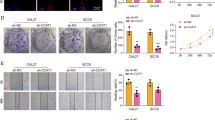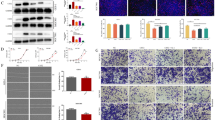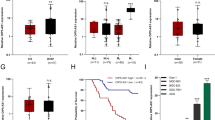Abstract
Objective
To investigate the effect of curcumin on viability of clear cell renal cell carcinoma (ccRCC) and analyze its possible mechanism.
Methods
In cell lines of A498 and 786-O, the effects of curcumin (1.25, 2.5, 5 and 10 μ mol/L) on the viability of ccRCC were analyzed at 24, 48 and 72 h by MTT assay. The protein expression levels of ADAMTS18 gene, p65, phosphorylation p65 (pp65), AKT, phosphorylation AKT (pAKT) and matrix metallopeptidase 2 (MMP-2) before and after curcumin (10 μ mol/L) treatment were examined by Western blotting. Real-time PCR and methylation specific PCR (MSP) were applied to analyze the expression and methylation level of ADAMTS18 gene before and after curcumin treatment (10 μ mol/L).
Results
Curcumin significantly inhibited the viability of A498 and 786-O cell lines in a dose- and time-dependent manner (P<0.01). Up-regulation of ADAMTS18 gene expression with down-regulation of ADAMTS18 gene methylation was reflected after curcumin treatment, accompanied by down-regulation of nuclear factor κ B (NF-κ kB) related protein (p65 and pp65), AKT related protein (AKT and pAKT), and NF-κ B/AKT common related protein MMP-2. With ADAMTS18 gene overexpressed, the expression levels of p65, AKT and MMP2 were downregulated, of which were conversely up-regulated in silenced ADAMTS18 (sh-ADAMTS18). The expression of pp65, pAKT and MMP2 in sh-ADAMTS18 was down-regulated after being treated with PDTC (NF-κ B inhibitor) and LY294002 (AKT inhibitor).
Conclusions
Curcumin could inhibit the viability of ccRCC by down-regulating ADAMTS18 gene methylation though NF-κ B and AKT signaling pathway.
Similar content being viewed by others
References
Huang ZX, Du YQ, Zhang XP, Liu SJ, Xu T. Clinical and pathological analysis of renal cell carcinoma bone metastasis. J Peking Univ (Health Sci, Chin) 2018;50:811–815.
Shanmugam MK, Rane G, Kanchi MM, Arfuso F, Chinnathambi A, Zayed ME, et al. The multifaceted role of curcumin in cancer prevention and treatment. Molecules 2015;20:2728–2769.
Bhaumik S, Jyothi MD, Khar A. Differential modulation of nitric oxide production by curcumin in host macrophages and NK cells. FEBS Lett 2000;483:78–82.
Kunnumakkara AB, Bordoloi D, Padmavathi G, Monisha J, Roy NK, Prasad S, et al. Curcumin, the golden nutraceutical: multitargeting for multiple chronic diseases. Bri J Pharmacol 2017;174:1325–1348.
Lin JK. Molecular targets of curcumin. Adv Exp Med Biol 2007;595:227–243.
Liu ZF, Xie ZL, Jones W, Pavlovicz RE, Liu SJ, Yu JH, et al. Curcumin is a potent DNA hypomethylation agent. Bioorg Med Chem Lett 2009;19:706–709.
Xu HY, Xiao Q, Fan Y, Xiang TX, Li C, Li CH, et al. Epigenetic silencing of ADAMTS18 promotes cell migration and invasion of breast cancer through AKT and NF κ B signaling. Cancer Med 2017;6:1399–1408.
Xu B, Zhang L, Luo C, Qi Y, Cui Y, Ying JM, et al. Hypermethylation of the 16q23.1 tumor suppressor gene ADAMTS18 in clear cell renal cell carcinoma. Int J Mol Sci 2015;16:1051–1065.
Xu B, Peng YJ, Ma BL, Cheng SD. Aberrant methylation of the 16q23.1 tumor suppressor gene ADAMTS18 promotes tumorigenesis and progression of clear cell renal cell carcinoma. Genes Genom 2021;43:123–131.
Xu HY, Xiao Q, Fan Y, Mu JH, Shao BF, Ren GS, et al. Overexpression of ADAMTS18 gene suppresses migration and invasion of human breast cancer cells. Tumor (Chin) 2016;36:749–757.
Alaghehbandan R, Montiel DP, Luis AS, Hes O. Molecular genetics of renal cell tumors: a practical diagnostic approach. Cancers 2019;12:85.
Qin CP, Liu CL, Zhao YH, Yin HQ, Du YQ, Hu FZ, et al. Expression of MEK/ERK signal pathways in renal cell carcinoma with bone metastasis. J Peking Univ (Health Sci, Chin) 2016;48:590–593.
Cao P, Jiang XJ, Xi ZJ. Sunitinib induces autophagy via suppressing Akt/mTOR pathway in renal cell carcinoma. o Peking Univ (Health Sci, Chin) 2016;48:584–589.
Sa G, Das T. Anticancer effects of curcum in cycle of life and death. Cell Div 2008;10:14.
Dong XD, Mu SH. Antiproliferative effect of curcumin on renal carcinoma A498 cells and its mechanism. Medical and Pharm J Chin People Liber Army (Chin) 2020;32:43–46.
Pavan AR, Silva GD, Jornada DH, Chiba DE, Fernandes GF, Chin CM, et al. Unraveling the anticancer effect of curcumin and resveratrol. Nutrients 2016;8:628.
Berrak O, Akkoc Y, Arisan ED, Gurkan AC, Yerlikaya PO, Unsal NP. The inhibition of PI3K and NF κ B promoted curcumin-induced cell cycle arrest at G2/M via altering polyamine metabolism in Bcl-2 overexpressing MCF-7 breast cancer cells. Biomed Pharmacother 2016;77:150–160.
Dhandapani KM, Mahesh VB, Brann DW. Curcumin suppresses growth and chemoresistance of human glioblastoma cells via AP-1 and NFkappaB transcription factors. J Neurochem 2007;102:522–538.
Giordano A, Tommonaro G. Curcumin and cancer. Nutrients 2019;11:2376.
Vallee A, Lecarpentier Y, Vallee JN. Curcumin: a therapeutic strategy in cancers by inhibiting the canonical WNT/β -catenin pathway. J Exp Clin Cancer Res 2019;38:323.
Author information
Authors and Affiliations
Contributions
Xu B carried out the design of this research, analysis and interpretation of data, and drafted the manuscript. Peng YJ participated in the collection of data and data analysis. Zhu WJ assisted in the design of this research and project development. All authors read and approved the final manuscript.
Corresponding author
Ethics declarations
There is no conflict of interest involved in this manuscript.
Additional information
Supported by the Beijing Natural Science Foundation (No. 7204316), Beijing Traditional Chinese Medicine Development Fundation (No. QN-2020-03) and Peking University Medicine Fund of Fostering Young Scholars’ Scientific & Technological Innovation (No. BMU2020PYB018)
Rights and permissions
About this article
Cite this article
Xu, B., Peng, Yj. & Zhu, Wj. Curcumin Inhibits Viability of Clear Cell Renal Cell Carcinoma by Down-Regulating ADAMTS18 Gene Methylation though NF-κ B and AKT Signaling Pathway. Chin. J. Integr. Med. 28, 419–424 (2022). https://doi.org/10.1007/s11655-021-3445-z
Accepted:
Published:
Issue Date:
DOI: https://doi.org/10.1007/s11655-021-3445-z




